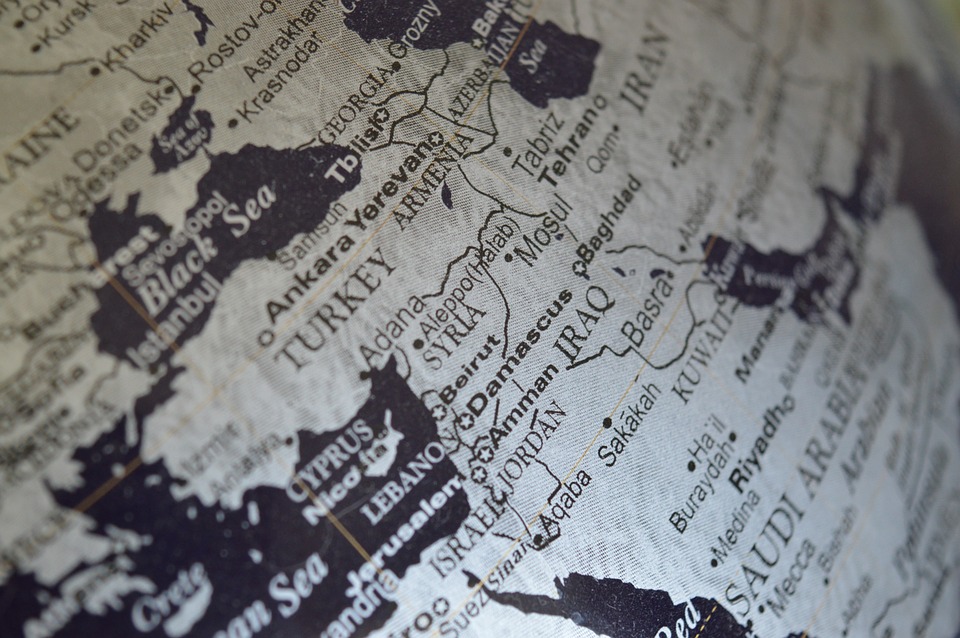Washington Kurdish Institute
Amidst the chaos in the world, Turkey’s double game is rewarding to commit more atrocities against Kurds in Syria and Iraq.
On April 27, once again, President Erdogan renewed threats to launch a fresh military invasion against the Syrian Kurds, while concurrently pressing ahead with yet another large-scale military campaign against the Kurds in Iraq. While Turkey works to expand its zones of occupation in Iraq, the Turkish Armed Forces and their jihadist proxy militias in Syria continue to attack the Syrian Democratic Forces (SDF), institutions of the Kurdish-led Autonomous Administration of North and East Syria (AANES), and Kurdish civilians in Syria. Turkey’s daily bombardment of Syria since their 2019 invasion has killed 60 civilians, including nine children, so far in 2022. Moreover, the war crimes perpetrated by Turkish proxies in Afrin have increased dramatically.
Turkey’s three invasions of Syrian Kurdistan have contributed greatly to bloodshed and instability in Syria, and the resulting refugee crisis since 2011. Meanwhile, Turkey and its authoritarian President Recep Tayyip Erdogan turned a blind eye to the activities of Islamic State (ISIS) terrorists as they launched attacks on the Kurds who continue to fight the terror group on behalf of the world. Turkey’s ongoing campaign of ethnic cleansing against the Kurds of Syria has already resulted in forcible changes to the country’s demographics, with significant displacement seen during and after Turkey’s invasion and occupation of Afrin in 2018 and the subsequent invasion and occupation of the northern areas of Serê Kaniyê (Ras al-‘Ayn) and Tel Abyad in 2019. The Kurdish-led SDF, who were backed by the United States and acted as the primary ground force in the war against ISIS in Syria, suffered immense losses during these invasions, and were required to divert significant resources from efforts to combat ISIS as a result of this Turkish military aggression. During these invasions, Turkey was heavily dependent on thousands of ISIS-like jihadists militias who were branded members of the “Syrian opposition,” and unleashed these forces on Kurdish civilians, destabilizing the only region in the embattled country that enjoyed peace and democratic, multi-ethnic self-governance.
Turkey also launched several military incursions into Iraqi Kurdistan under the pretext of fighting the Kurdistan Workers’ Party (PKK). Since 2015, the Turkish military has killed at least 96 civilians and wounded 101 civilians across the Kurdistan Region of Iraq, displacing hundreds from their villages. Iraq’s Ministry of Foreign Affair has repeatedly opposed Turkish incursions, recently releasing strongly worded statements on the matter and summoning the Turkish ambassador. The recent Iraqi statement also refuted Erdogan’s claims that the Iraqi federal government and the Kurdistan Regional Government (KRG) were assisting with Turkey’s ongoing invasion. Economic relations aside, Erdogan’s hostility toward the Kurds of Iraq and the KRG is well established – Despite economic cooperation with the Kurdistan Regional Government (KRG), Erdogan was the first world leader to oppose the Kurdistan independence referendum in 2017, cooperating with both Baghdad and Tehran to impose a harsh embargo against the Kurds.
Erdogan continues attacking the Kurds wherever they are. In Turkey, there are plans to shut down the second-largest opposition party, the pro-Kurdish Peoples’ Democratic Party (HDP). Additionally, Kurdish lawyers, politicians, singers, youth, female activists, and students are detained and jailed daily. A dangerous rise in hate crimes by ultra-nationalists against the Kurds, stoked by the rhetoric of Erdogan and his allies, has also taken place in recent years.
Turkey’s attacks on Syrian Kurds strengthen ISIS terrorists, other jihadist groups, the Assad regime, and increase Iranian influence and Russian domination in Syria. Turkey’s attacks on Iraqi Kurdistan destabilize the safest and most developed part of Iraq and weaken one of the United States’ most reliable partners since 1991. The more Kurds are targeted and subjugated in Turkey, the further Turkey moves from democratic values on which the United States was built and the role of a strategy ally for the United States and NATO in the region. The HDP has been the only party in Turkey that is serious about democratizing Turkey and safeguarding the rights of all citizens, regardless of gender, ethnicity, or religion, working tirelessly despite the challenges posed by both ruling and opposition parties.
Erdogan’s new plans to invade Syrian Kurdistan are a true test of the Biden Administration’s stance on human rights, the battle against ISIS, and protection of allies. In 2019, Biden criticized President Trump for “abandoning Kurdish allies,” resulting in a chaotic situation where the US lost a significant influence in the region. Turkey is taking advantage of the Russian invasion of Ukraine, playing a game where they sells Turkish drones to Ukrainians and, at the same time, receive Russian oligarchs with wide-open arms. Moreover, Turkey has yet to implement sanctions imposed on Russia by NATO and European nations. The international community, mainly the US, should not repeat the mistakes of 2018 and 2019, allowing Turkey to further damage and destabilize Syria and empower America’s adversities including ISIS by invading Syrian Kurdistan. The U.S. must also halt Turkey’s repeated attacks on Iraqi Kurdistan, as these attacks bring bloodshed to peaceful and stable areas of Iraq and weaken the United States’ historic allies in the country. Iraq is destabilized by continued Turkish attacks, similar to Iranian attacks throughout the country. However, it seems Iraq’s sovereignty only matters when Iran launches cross border attacks, not Turkey. Encouraged by recent history, Erdogan believes the world will continue to turn a blind eye to Turkey’s attacks on Kurds. The Biden Administration has a chance to stop him and avoid repeating the mistakes of the past by protecting the Kurd people who want nothing more than to live in peace in a free and democratic society.
Sierwan Najmaldin Karim is the president of the Washington Kurdish Institute (WKI).

